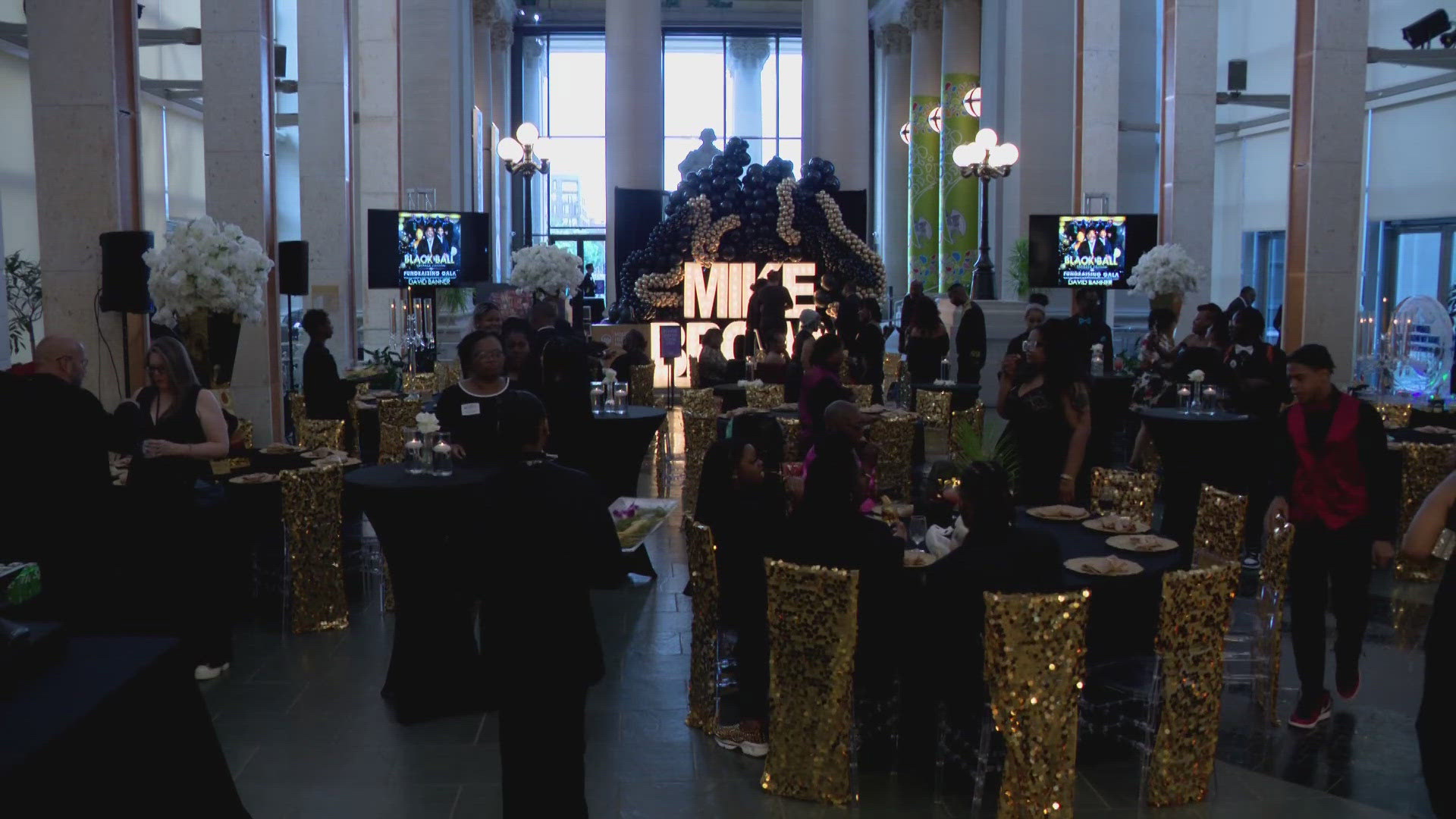FERGUSON, Mo. (AP) - Along a short stretch of winding road through a nondescript apartment complex, two memorials of stuffed animals mark the spots where young men died. The sites are separated by roughly 1,000 feet, but in a sense are worlds apart.
One is for Michael Brown, whose fatal shooting by a Ferguson police officer ignited months of protests and unrest and started a national conversation about race and law enforcement tactics.
The other is for DeAndre Joshua, a young black man found shot to death and set on fire on Nov. 25, the morning after a grand jury decided not to indict Officer Darren Wilson in Brown's death, setting off yet another eruption of violence in Ferguson. Outside of family and friends, Joshua's name is mostly unknown.
Forty people claimed to have seen some aspect of the confrontation that led to Brown's death, but police have turned up not a single cooperating eyewitness to Joshua's slaying.
The U.S. Justice Department would find that Wilson was justified in shooting Brown. But it also determined that minorities in Ferguson are disproportionately stopped and searched, fined for petty offenses and subject to excessive police force.
Distrust between people in Ferguson and law enforcement has made it harder for police to investigate Joshua's killing; police also cite the fear that cooperation with authorities invites retribution from criminals.
"Just with that time frame, with the whole Michael Brown case, and the hatred toward law enforcement, our detectives are having a tough time with people coming forward and letting us know what happened," said Shawn McGuire, a spokesman for the St. Louis County Police Department, which is investigating Joshua's death.
Joshua, 20, lived with his mother in University City. Though his family insists he was on the right track, he'd had brushes with the law. He received a suspended jail sentence and probation for resisting arrest after an April 2013 incident in St. Louis; according to court documents, police investigating an armed robbery chased a Chevrolet Impala after one of five occupants of the car - Joshua, his twin brother and three others - pointed a gun at them.
Joshua spent his last day at his aunt's house in Ferguson, where he often stayed to be closer to his job at Wal-Mart. In anticipation of the grand jury's decision in the Brown case, Wal-Mart had decided to close, and Joshua was happy to have the night off.
He watched the rioting on television before going to the apartment of his girlfriend, Georgia Young, in Canfield Green, steps from where Brown had died, relatives say.
He was in and out of Young's apartment, and went back to his aunt's house well after midnight to pick up an iPad, one of three he had been trying to sell.
The last time Joshua came to Young's apartment, she said he stayed for about a half hour before slipping into bed. But five minutes later, sometime around 2 a.m., Joshua got up, grabbed three iPads and his pistol, and departed, without saying where he was going. Young said it wasn't unusual for him to have a weapon, because in that neighborhood, "everybody carries a gun."
Joshua later showed up at another apartment in Canfield Green and knocked on the door of a friend, Sabrina Webb - a cousin of Michael Brown's. It was between 2:30 and 3 a.m., Webb said. Joshua was usually playful, but now, it seemed like he was afraid, and wanted to come in, but never asked to, Webb said.
A tall, thin black man with "a low haircut," someone she did not know, stood off to the side. She asked Joshua who the stranger was, and the man quickly responded, "I'm his cousin."
"DeAndre looked up at him like it wasn't his cousin, but like he didn't want to disagree with him, like he was afraid," Webb recalled.
Webb said Joshua turned around and trotted down the stairs. The unknown man followed, catching up to Joshua in the parking lot. They walked away together, Webb said.
At 8:15 a.m. Joshua's corpse was found in the driver's seat of his white Pontiac Grand Prix. He had been shot once in the head, and set on fire with some sort of accelerant that left burns on his arm, fingers and legs. Police say they believe he had been dead for several hours.
Word spread quickly, fueled by blogs and Facebook postings, that Joshua had been murdered because he had testified before the grand jury investigating Brown's death, but authorities say he was never a witness.
There has been no indication that Joshua and Brown knew each other, but they did have connections. Webb was one. Another was Joshua's longtime friend Dorian Johnson, who had been with Brown when he was killed and subsequently told contradictory stories about what had occurred.
Police won't say if they recovered iPads or a gun in the car with Joshua's body, citing the ongoing investigation. Joshua's mother, Maria Joshua, said investigators found $360 in her son's pocket. It's not clear, then, if robbery was a motive.
Maria Joshua said the description of the man given by Webb does not resemble any of her son's cousins.
She pleaded for help in finding her son's killer.
"Just put yourself in my shoes," she said. "What if it was your family member?"
__
The AP National Investigative Team can be reached at investigateap.org
(Copyright 2015 The Associated Press. All rights reserved. This material may not be published, broadcast, rewritten or redistributed.)


